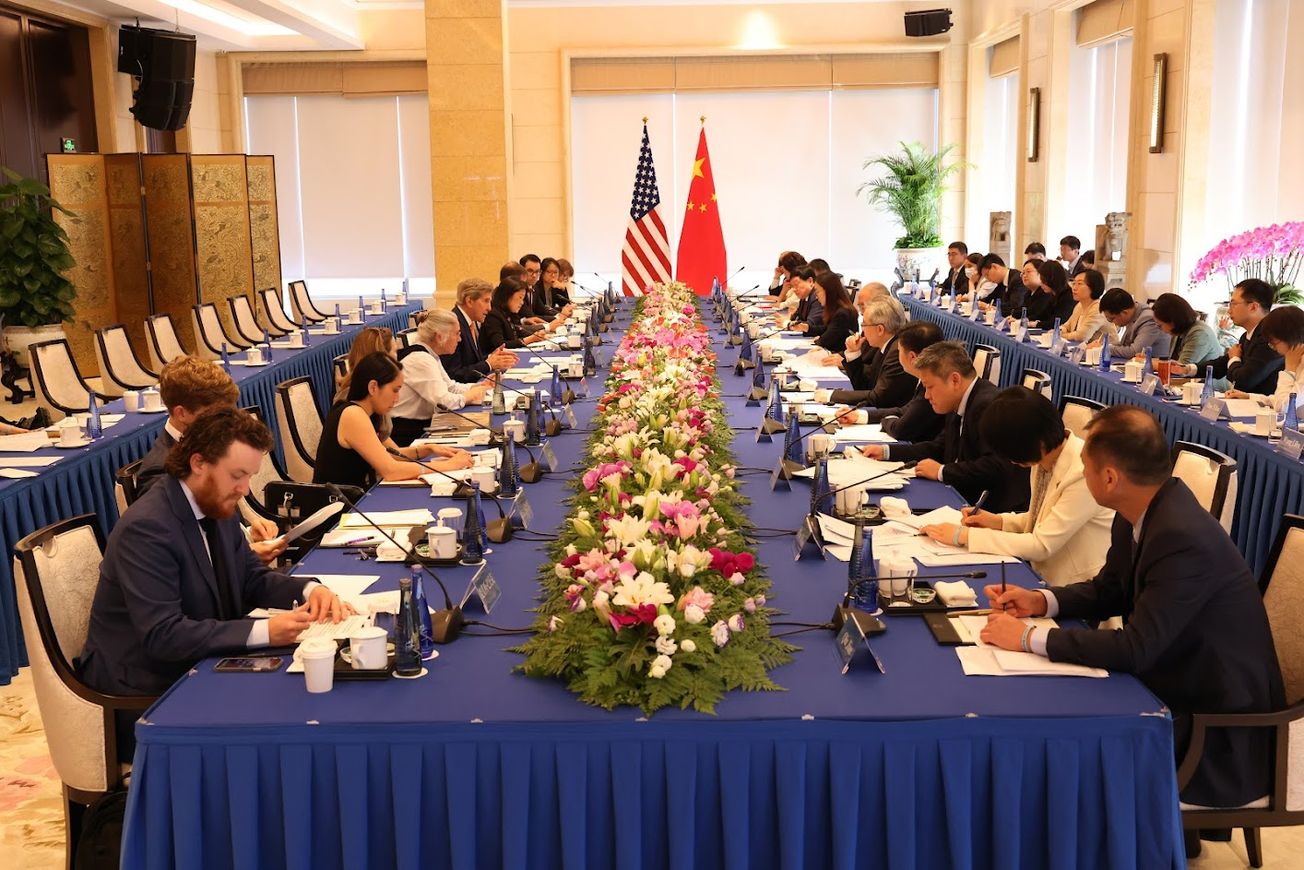Climate talks are back on track between China and the United States, the two biggest carbon polluters, yet China says it will chart its own climate actions without outside interference.
China's President Xi Jinping took an apparent swipe at mulilateral approaches to the climate crisis on Wednesday at the end of four days of high-level U.S.-China climate talks.








